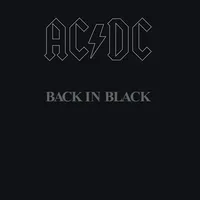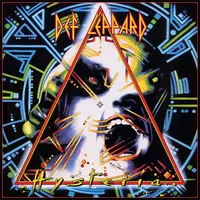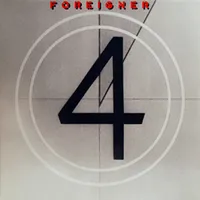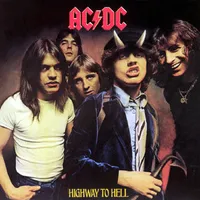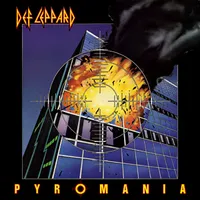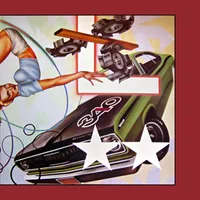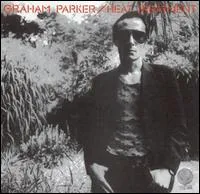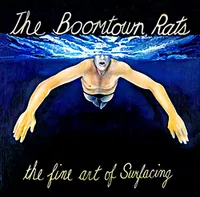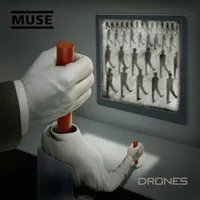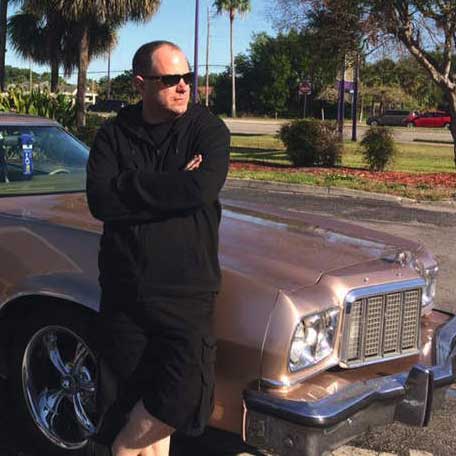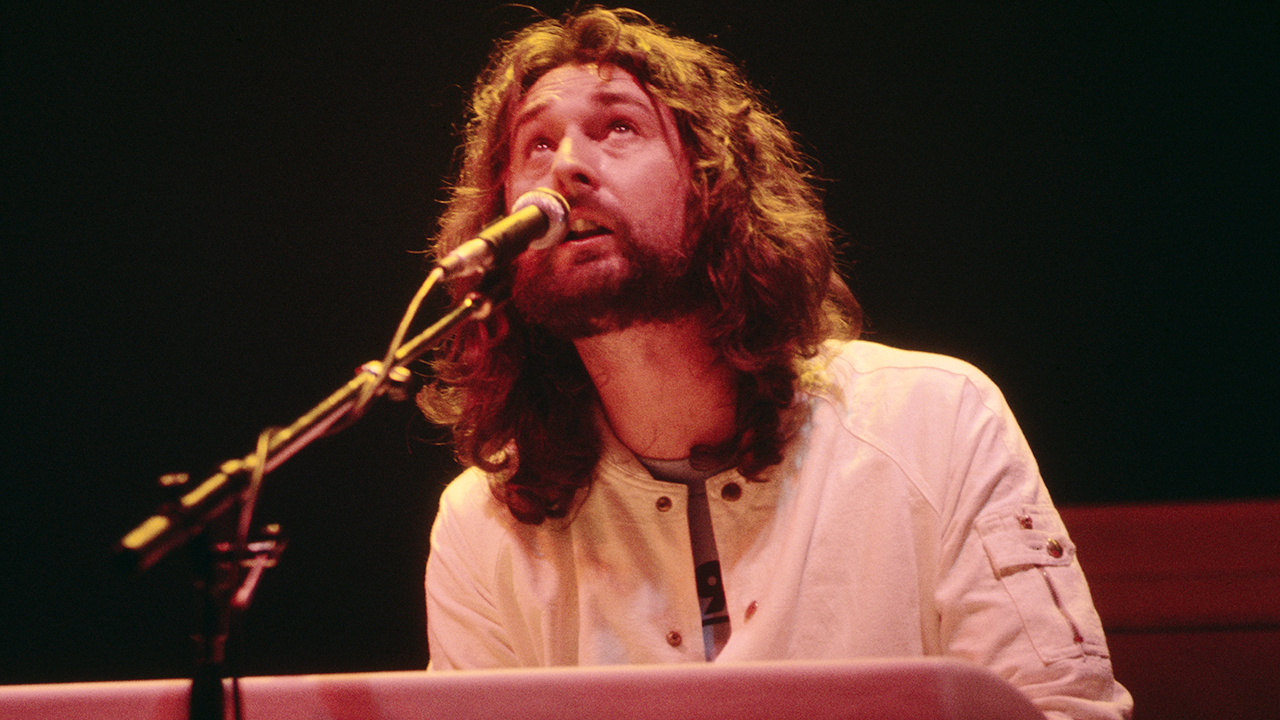"We would just take each song and try to raise it to the standard of a rock classic": The albums produced by Mutt Lange you should definitely listen to
The best albums from producer Robert John ‘Mutt’ Lange, unparalleled audio perfectionist and man with the Midas touch, whose sonics sent the careers of AC/DC and Def Leppard soaring

Synonymous with the high polish of Def Leppard and the filthy boogie of AC/DC during their 80s career peaks, Robert John ‘Mutt’ Lange (the nickname comes from his childhood) has appropriately been described as the James Cameron of rock producers. But delve deeper into his CV and you might be surprised to find that the reclusive South African-born producer began his career with R&B pub rockers Graham Parker and The Rumour, The Motors, prog-pop outfit City Boy, country bands Clover and Outlaws, and blues rockers Savoy Brown.
As much technical prowess and skill that any good producer might possess, what separates a good producer from a great producer is the same as what makes a great manager: one that encourages, inspires, and develops those around them to perform even better. A talented bass player and a trained singer, Mutt is an accomplished musician in his own right – perfectly placed to understand and respect the mindset of his protégés. As such, Def Leppard and AC/DC took him to their hearts. For both bands, Mutt produced the best-selling albums of their careers following their respective tragedies.
Def Leppard bassist Rick Savage simply considers Mutt a genius. Guitarist Phil Collen credits him with improving his playing when he joined during the recording of Pyromania. “When I met Mutt, my playing changed – as a producer he makes you play a lot better,” said Phil. “He improved my playing 100 per cent. He does that to everyone he works with.”
During the recording of Back In Black, Brian Johnson was encouraged by Mutt to sing even higher than he thought attainable, pushing him to the very height of his ability and insisting on precision – as evidenced on opener Hells Bells. “I knew never I could sustain notes like that,” said Beano of his ’DC debut.
A teetotaller known for putting in long hours – a dedicated work ethic not to every musician’s taste – Lange’s attitude to producing is to cultivate, improve and polish a piece of music over and over until it’s faultless. It’s a meticulous and painstaking attitude to work and undoubtedly the hallmark of a perfectionist.
Notoriously private, Mutt is only known to have taken part in one interview in his entire career – for the BBC’s 1989 Def Leppard documentary, Rock of Ages. “We would just take each song and try to raise it to the standard of a rock classic,” Mutt said of working with Def Leppard on Hysteria. “We would just hone and hone and hone until the music itself was right.”

AC/DC - Back In Black (Albert, 1980)
Having proven himself on Highway to Hell, Mutt was the safe pair of hands AC/DC needed following the trauma of Bon Scott’s death and the need to establish new lead singer Brian Johnson. As that blood-tingling muted guitar count-in to the title track suggests, AC/DC recorded Back In Black live as opposed to using overdubs.
With focus and sheer bloody-minded determination in spades, they didn’t even use a click track thanks to human metronome, Phil Rudd. The third best-selling album in history, it’s Mutt Lange’s single greatest accomplishment. The beauty of Back In Black is its ability to sound dirty and ragged while at the same time delivering a perfectly polished audio capture.
Def Leppard - Hysteria (Phonogram/Mercury, 1987)
Waiting for drummer Rick Allen to recover and re-learn the drums following his horrific car accident, Def Leppard’s follow-up to Pyromania came a full four years later. Mutt supported Rick even as the drummer lay in hospital, arm amputated, thinking his career was over. Lange’s encouragement helped drive Rick’s determination to formulate a custom-built semi-acoustic kit.
The band’s concerns that too much time had passed and their fanbase had moved on since Pyromania were unfounded: Hysteria was an absolute monster that has shifted over 20 million units to date. It put Def Leppard on top of the world and Mutt’s golden touch was beyond question.
Foreigner - 4 (Atlantic, 1981)
The recording of Foreigner’s 4 was an intense affair during which even the usually placid Mutt lost his cool. The recording session took almost a year – a staggering 10 months – one of the longest ever for a single album, especially one that’s under 45 minutes duration.
Even though best-selling single Waiting for a Girl Like You was in the can after just two takes, budgets and studio time limits were smashed, with the recording costs spiralling over $1m. Guitarist Mick Jones took a production credit on the album, finishing up when Mutt shifted his attention to Pyromania. Although Mutt helped with songs, he received no writing credits.
AC/DC - Highway To Hell (Albert, 1979)
The first of Mutt’s legendary AC/DC production triptych (the third being For Those About To Rock), the heavy blues of ’DC was the perfect bridge for Mutt following his previous work with the likes of Graham Parker and Savoy Brown. Persuaded by their label to drop long-time producer George Young (older brother of Malcolm and Angus) for a ’name’, they hired Mutt after a mutual dislike of Jimi Hendrix engineer Eddie Kramer.
Mutt coached Bon Scott on co-ordinating his breathing technique – as demonstrated on the lung-bursting Touch Too Much, with Mutt providing melodic backing vocals. Even more controversially, he even coached the already expert Angus on his guitar solos.
Def Leppard - Pyromania (Vertigo, 1983)
Def Leppard’s third album was their second with Mutt following his work on High ‘N’ Dry. Mutt saw the band’s potential by witnessing them live and described them as rough diamonds he could shape and polish. By smoothing off the more angular edges of the band’s Judas Priest and Thin Lizzy influences into radio-friendly rock, he did exactly that.
With the inevitable accusations of selling out, the band’s new sound had its heavy metal detractors, but thanks to solid rocker Photograph and anthemic Rock of Ages (featuring Mutt’s comedy German language intro), Pyromania peaked at no.2 on the Billboard album chart.
The Cars - Heartbeat City (Elektra, 1984)
Heartbeat City was The Cars’ fifth album – their first four were handled by Queen producer, Roy Thomas Baker. It marked the band’s commercial peak, but at an expense. Recording took six months – much longer than the band liked; their classic debut was completed in one week.
Used to spontaneity, the arduous work left The Cars demoralised by Mutt’s meticulous technique, who spent days getting just one sound perfect. Rick Ocasek vowed never to make an album in the same way again. He self-produced The Cars’ 1987’s follow-up Door to Door (within a month) but worn down by the fame and fallout of Heartbeat City’s quadruple platinum sales, he quit the band who then split.
Graham Parker - Heat Treatment (Vertigo, 1976)
One of Mutt’s earliest jobs after working with the likes of City Boys and Kevin Coyne, Heat Treatment capitalised on R&B/new wave rocker Graham Parker’s scorching debut Howlin’ Wind (produced by Nick Lowe and released just six months previously.)
By comparison, Heat Treatment was a more mature, slicker and less raucous affair, but it emphasises Parker’s rapid singer-songwriter growth – comparable to Elvis Costello but maintaining a swagger like Dr Feelgood. With the benefit of hindsight, Parker has somewhat unfairly described Heat Treatment as one his least favourite own albums, describing Mutt’s production as ‘stiff’. But for a 27-year-old producer, it still shows much potential.
The Boomtown Rats - The Fine Art of Surfacing (Ensign, 1979)
Geldof and the lads hired Mutt to produce their first three albums before moving onto Tony Visconti. Surfacing was their third and most diverse sounding effort. The grimly prophetic subject matter of lead single I Don’t Like Mondays scored them their second no.1 single following Rat Trap from Tonic for the Troops, with Geldof inspired by Mutt’s professionalism.
“Because of Mutt Lange, I’d already begun writing with structure and melody,” said Bob of the TFTT sessions. “I wrote She’s So Modern and Mutt said, 'that’s a pop song'”. Surfacing built on that success by widening their sound but remaining resolutely Irish – setting them apart from the era’s generic new wave US chart bands.
Muse - Drones (Helium-3, 2015)
Prior to recording, lead vocalist Matt Bellamy worried Mutt would engender Muse with an inappropriately commercial sound. But the stripped-down conceptualism of Drones received plaudits from the mainstream as well as the heavy metal and prog press.
It won the 2016 Grammy award for best rock album, proving Mutt has still got what it takes in the 21st Century. “He has the air of a person who hasn’t lived in the constraints of normal society or life for a very long time,” said Bellamy of Mutt. “You feel like you’re in the presence of some sort of guru, or spiritual outsider.”
...and one to avoid
You can trust Louder
Michael Bolton - The One Thing (Columbia, 1993)
Even if you’re a hard-core Michael Bolton fan, it’s unlikely that The One Thing will be one of your faves. Mutt Lange is at his best when afforded auteur status and given the freedom to own a project himself. Is there any truly classic album that was produced by committee?
With two other pop producers (plus Bolton himself) getting involved in the production, it was clear from the start that its lack of a cohesive overarching sound meant it wouldn’t match the soft-rocker’s previous albums’ sales. But in purely commercial terms, Lange hasn’t produced a bad album; The One Thing still reached No.3 in the US with triple-platinum sales.
Sign up below to get the latest from Classic Rock, plus exclusive special offers, direct to your inbox!
A regular contributor to Louder/Classic Rock and The Quietus, Burrows began his career in 1979 with a joke published in Whizzer & Chips. In the early 1990s he self-published a punk/comics zine, then later worked for Cycling Plus, Redline, MXUK, MP3, Computer Music, Metal Hammer and Classic Rock magazines. He co-wrote Anarchy In the UK: The Stories Behind the Anthems of Punk with the late, great Steven Wells and adapted gothic era literature into graphic novels. He also had a joke published in Viz. He currently works in creative solutions, lives in rural Oxfordshire and plays the drums badly.
